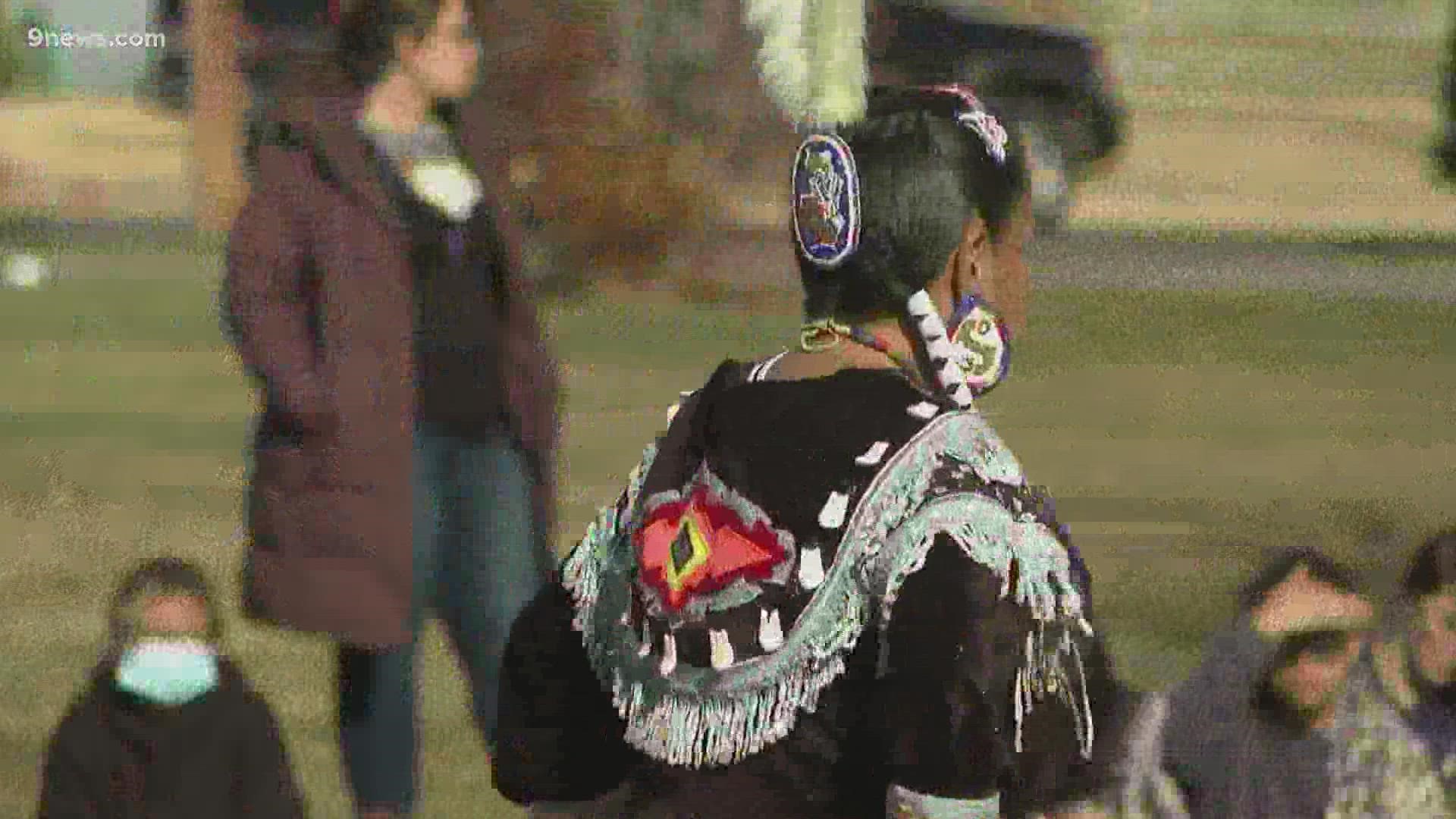DENVER — Reclaiming something that was taken away is never the easy choice, but one Denver school choses to do it every day.
“It’s funny we don’t really do a lot around Native American Heritage month at our school,” said Terri Bissonette, the founding head of school of the American Indian Academy of Denver.
There’s no need. Her school is rooted in teaching STEAM or science, technology, engineering, arts and mathematics, through the lens of Indigenous culture.
“Really since I was 18 years old a lot of my life’s passion has been on reclaiming our culture,” said Bissonette. “Reclaiming that beauty that was once ours. That pride. Cultural identity.”
She’s reclaiming it because her mom was taught to be ashamed of being Ojibwe.
“My mom is a boarding school survivor,” said Bissonette. “She started boarding school when she was six years old. She lost her language at that boarding school, and was really indoctrinated into Catholicism and just mainstream society."
The history of Colorado’s Native American boarding schools is only recently being talked about after hundreds of bodies were discovered in a mass grave at an Indigenous boarding school in Canada. Colorado has at least three of those schools that were created to assimilate children into the dominant culture and erase their Native one.
“It’s somewhat ironic that education is really the key to our healing and the key to our future, when education was really designed to destroy us through boarding schools,” said Bissonette.
The students call her "Dr. B," but she introduces herself in her native language, Ojibwe. Although she’s not fluent, she finds power in the words that her family was told not to speak.
“The biggest thing to me when I think about our languages, it’s the representation of our inner world view and that interconnectedness,” said Bissonette. “And so it’s very different than English, Spanish those types of languages.”
When the 6th-9th grade charter school opened in 2020, they became the only public school in Colorado to teach Navajo or Diné as a language.
The Diné teacher is Tony Crank, who has a music degree, but because he grew up speaking Diné on a reservation in Utah, the school needed him in this classroom.
“To reintroduce a language that I feel like is declining,” said Crank. “And I don’t want to be the only one speaking it when I leave.”
He teaches students like 14-year-old Rose Leyba who didn’t grow up in a traditional Diné household because her family was also taught to be ashamed of their culture.
“Our people have been through a lot throughout history,” she said. “So it wasn’t normal for the rest of society for them to be who they really were, like to embrace their culture.”
Leyba’s Indigenous classmates remember feeling like an outcast at other DPS schools.
“Recently we Indigenous people have come into community after so long being told we can’t," said Kaya Dura, a 9th-grader.
"Told we can't be ourselves," echoed fellow freshman, Johanna Flood. "We can’t learn our traditional ways that our ancestors learned, but here we can."
Bissonette said Denver was one of the original four relocation cities back in the 1950s and 60s as part of a federal program that incentivized people to move off reservations and into urban areas.
That’s one of the reasons she said there are 200 tribes represented in the metro area.
SUGGESTED VIDEOS: Voices of Change

